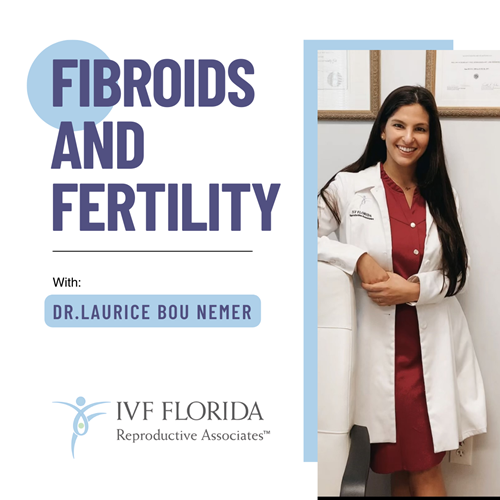If you have been diagnosed with fibroids and are now trying to conceive, you might have some questions about how fibroids may affect your fertility and pregnancy. Dr. Laurice Bou Nemer gives insight into the different types of fibroids, how they can affect pregnancy, and what treating fibroids may look like.
What are fibroids?
Usually noncancerous, fibroids are smooth muscle tumors, primarily found in or around the uterus. They are extremely common, and by the age of 50 over 70% of women have them. They are even more common in Black women, with estimates that 80% of Black women may be affected by uterine fibroids. It is also important to know that fibroids are different from ovarian cysts. Cysts are fluid-filled sacs that develop in the ovary, while fibroids are masses in the uterine wall.
Fibroids effect on fertility
“Fibroids are very common, and in fact, many women have successful pregnancies with them,” shares Dr. Bou Nemer. “Our concern is typically with their location.”
Fibroids can occur in three locations within the uterus Inside the uterine cavity (submucosal), within the muscular wall of the uterus (intramural), and on the outside of the uterus (subserosal). Submucosal fibroids often pose the most difficulty in terms of becoming pregnant, as they limit the space available to an embryo to implant on the wall of the uterus. If a pregnancy does start, Submucosal fibroids can also cause early miscarriages.
Intramural and subserosal fibroids are not as problematic, however, if they become too large, they can still impact how the uterus functions, and may need to be removed.
Treatment options for fibroids
The great news for fertility patients with fibroids is that fibroids can often be managed with medications, surgery, or a combination of both.
“It’s always a good idea to speak to a fertility specialist if you are trying to conceive with fibroids,” explains Dr. Bou Nemer, “We’ll be able to take your situation into account and make a plan that’s right for you.”
Medical management may involve oral pills or injections to stabilize your uterine lining or decrease the size or growth of your fibroids. For large fibroids or those directly impacting the uterine cavity, surgery may offer better outcomes. Your physician may take a vaginal approach with hysteroscopy, where a telescope-like device is advanced through the vagina into your uterine cavity. For larger fibroids in the wall or outside of the uterus, an abdominal approach with laparoscopy or laparotomy may be recommended.
When considering these options, you should consult a fertility specialist, to be sure your treatment options are in line with your family planning goals.

